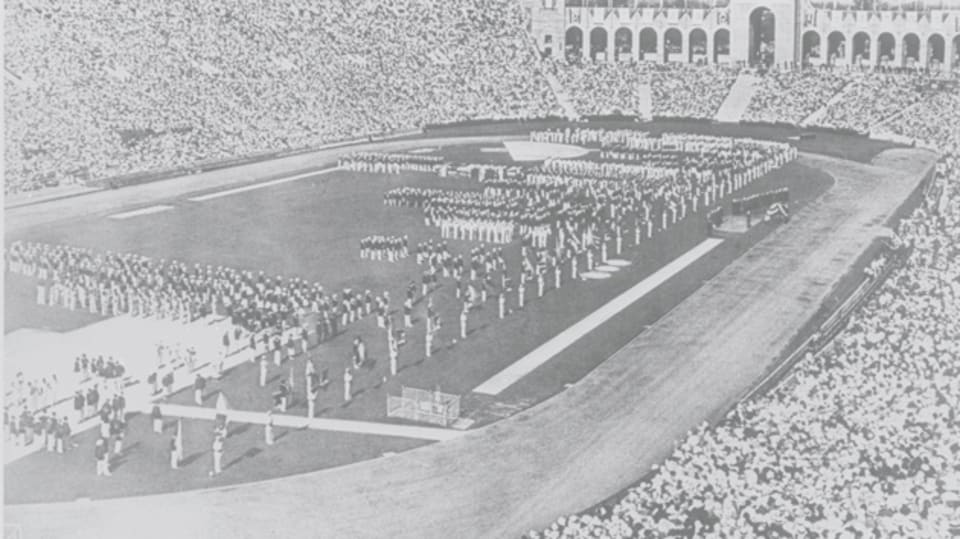Los Angeles leaves a legacy
On 14 August 1932, the Olympic Stadium in Los Angeles – the scene of so many feats of sporting glory over the previous 15 days – filled to the rafters once more to witness the culmination of the 1932 Games. The crowds were treated to one final sporting showpiece, the equestrian Prix des Nations, before the pomp and circumstance of the Closing Ceremony began.

“All eyes turned again to the huge tunnel from which, two short weeks previously, had emerged the flower of the youth of forty nations come to celebrate the Games of the Xth Olympiad on the shores of the Pacific,” the Official Report recalls. “And, as the first martial notes sounded on the late afternoon air, there marched from the tunnel the same white-clad figure that had appeared on the Opening Day, proudly bearing the banner of Greece, Mother of the Olympic Games.”
Then, in the same order as the Opening Ceremony, came the flags and banners of the participating countries. But conspicuous by their absence were the athletes themselves, many of whom had already begun their long journey home. With rent at the Olympic Village charged by the night, it was perhaps little surprise.
Speaking of the new-fangled Olympic Village, the consensus was that it had been a resound-ing success. “Here was a great happy family of forty nationalities putting the politicians of the world to shame; and not a single athlete forgot for a moment the country and blood from which he sprang, nor that shortly he would pit his skill and character against his breth-ren from other lands for the honour of country and sport,” remarked the Official Report. “Night after night, within the portals of the Village, victor met vanquished in the embrace of true personal friendship and the understanding of man to man.”
Sadly, there are no remnants of the Village today. After the Olympics, every portable house was sold for 140 dollars (215 dollars if furnished), with many sent around the United States and some even delivered to far away destinations including Germany, Japan, and South Africa. But its legacy lives on, with the Village becoming a distinctive hallmark at all subsequent Games.
Back in the Olympic Stadium, a Dutch dignitary performed the ceremonial passing over of the Olympic flag, entrusted to Amsterdam four years earlier, to John C. Porter, Mayor of Los Angeles, which would remain its keeper until Berlin in 1936. As trumpets sounded, the Olympic flame was slowly extinguished to mark the closing of the 1932 Games.
The last word may be left to the Official Report, which proclaims that in the face of great and unforeseen challenges “sentiment sustained the whole Olympic family in carrying on, in a period of world-wide economic depression and political strife, and even at the cost of ex-treme self-sacrifice, in the determination to make the Games of the Xth Olympiad an out-standing success.”
